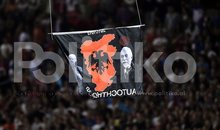
 Flash News
Flash News
When 90 minutes awaken decades of history: Albania – Serbia, beyond football
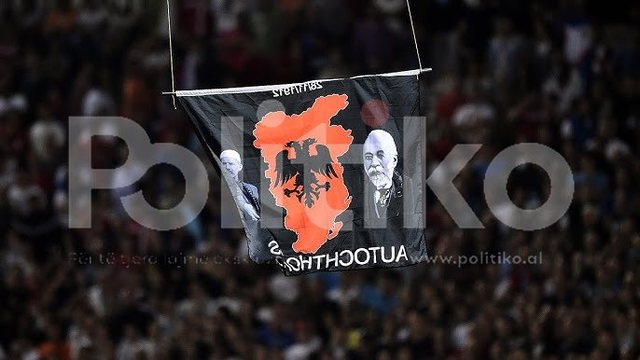
Two national teams, one field and hundreds of fans. At first glance, the panorama of a football match that will be played on October 11 at the 'Red Star Stadium'. But for Albania and Serbia it is not 'just' a duel on the field.
On June 7, the red and black national team hosted the Serbs at the National Arena. Tirana was 'armored' with over 2,000 security forces and around 500 civilian operatives – including RENEA, FNSH, Anti-Terror and SHISH – who descended on the ground to guarantee order. Several road axes were paralyzed, mainly the area around the stadium and the hotel where the Serbian national team stayed. Drones were banned, while advanced security systems were installed in the stadium to monitor any suspicious movements from the stands.
It was not a political summit, nor a visit by an American president or a high-ranking EU official. It was 'just' a football match. In fact, what is worth noting is that such extreme measures arouse more fear, suspicion, than give the impression of a secured order. A football match that takes on the dimensions of an almost political event.
Were these measures a guarantee of a peaceful match – or evidence that the fear of on-field clashes has not subsided?
The drone that ignited an open wound: Albania–Serbia 2014
On October 14, 2014, Albania and Serbia faced each other for the first time in an official match, as part of the Euro 2016 qualifiers. But the match at Belgrade's Partizan Stadium would not be remembered for football. In the 42nd minute, the game was interrupted amid tensions and unprecedented violence from Serbian fans, who took to the field.
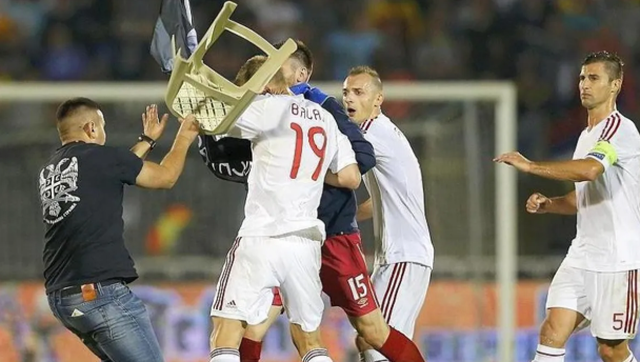
A few seconds before the break, a remote-controlled drone flew over the field, carrying a flag with a map of “Greater Albania”, the inscription AUTOCHTHONOUS and portraits of Ismail Qemali and Isa Boletini. This symbolic scene provoked a fierce reaction from the Serbs: first, their footballers tried to tear the flag apart by force; then, dozens of Serbian hooligans entered the field and physically attacked the Albanian players.
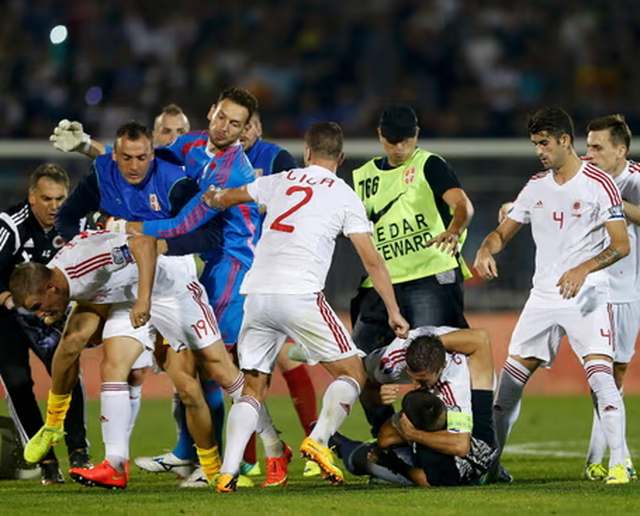
UEFA officially ruled the match abandoned due to violence, awarding Albania a 3–0 victory on the table. This decision was upheld a year later by the Court of Arbitration for Sport (CAS), despite Serbia's objections.
Kosovo always in the background
In 1998, Kosovo experienced a devastating war against the Serbian army and paramilitaries. Albanians faced extreme violence, mass rapes, expulsions, and killings that reached the proportions of genocide.
Today, Kosovo is an independent sovereign state, yet Serbia does not recognize it and still sees it as part of its territory.
The on-field confrontations between Albania and Serbia are not 'just' a football match. The on-field encounter between the two national teams reflects the still-open wounds.
Është një akt simbolik që përfaqëson historinë, konfliktin, rezistencën dhe krenarinë kombëtare. Slloganet shoviniste si “Kosova është Serbi” apo thirrjet si “Vrite shqiptarin”, që shpesh janë dëgjuar në stadiume, nuk janë veçse pasqyrimi më i qartë i një urrejtjeje ende të gjallë. Dhe për futbollistët shqiptarë, kjo nuk është thjesht lojë — është identitet.
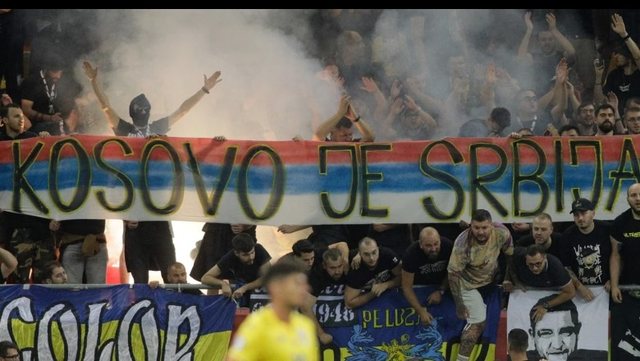
Vendimi racist i UEFA-s
3 pikë të humbura në tavolinë për Shqipërinë dhe një gjobë 100 mijë euro. Ky ishte vendimi zyrtar i UEFA-s pas një ndeshjeje të dhunshme në vitin 2014.
Shqipëria u shpall fajtore për dronin që zbriti në fushë, fyerjet dhe ofendimet që shpërthyen pas dhunës në kurriz të futbollistëve kuq e zi. Duke e cilësuar racist, Federata Shqiptare e Futbollitapeloi vendimin e UEFA-s.
Armand Duka u shpreh i zhgënjyer duke e parë si një kompromis të UEFA-s me dhunën e huliganëve serbë.
"Zhgënjyese. Vendimi nuk ishte i bazuar në rregulla, UEFA nuk dënoi dhunuesit e futbollit. Vendimi ishte një lloj kompromisi dhe jo për të dhënë drejtësi sportive. Nuk e dimë nëse UEFA ka marrë parasysh thirrjet raciste. Nëse jo do kërkojmë të merren penalitete për thirrjet raciste. Nuk kam menduar që UEFA do ishte kaq tolerante ndaj huliganëve e rrugaçëve”.
Vendimi i UEFA-s ngjalli reagime edhe tek futbollistët e kombëtares, të cilët u dhunuan brutalisht në fushë nga serbët.
Lorik Cana: Kjo nuk është drejtësi
Bekim Balaj: Më fal Platini për stolin që desh e thyeva me kokë. Bravo UEFA!
Trajneri De Biazi: I zhgënjyer për një gjykim që nuk na japin drejtësi! Unë e kuptoj komitetin por unë mendoj se është e vështirë për ne që të pranojmë një vendim të cilin ne jemi mposhtur në të gjitha frontet!!! Na hoqëm edhe atë që kishim fituar në fushë! Çfarë duhet të ndodhte më shumë?
Fadil Vokrri i Federatës së Kosovës: Vendim skandaloz. Është një vendim politik i UEFA-s. Kur sulmohen lojtarët, UEFA vendos në favor të Serbisë.
Diplomacia e heshtur e Ramës
Para ndeshjes së 7 qershorit, Aleksandër Vuçiç iu drejtua me një thirrje të prerë trajnerit të kombëtares serbe: Luani kundër Shqipërisë për t’i mposhtur. Reagimi i presidentit serb ishte si ‘benzina’ që i hidhet zjarrit, duke nxitur kombëtaren e tij për ta fituar me çdo kusht 3 pikëshin.
Por, e kundërta ndodhi me kreun tonë të qeverisë. Rama jo vetëm që nuk bëri reagim, por madje mungoi në stadium. Duke ditur ngarkesën simbolike që mbartin duelet mes Shqiëprisë dhe Serbisë, mungesa e kryeministrit nuk kaloi pa u vënë re.
Rama njihet për linjën e butë që ka mbajtur kundrejt Aleksandër Vuçiç sa I përket retorikës që ai ka përdorur me Kosovën. Në përpjekje për të qenë korrekt me diplomacinë e tij, kjo mungesë dhe heshtje e Ramës shihet si lëvizje e zgjuar për të mos ndezur debat politiko-mediatik. Rama prezantohet para ndërkombëtarëve si ‘lideri i paqes’ që rroket me çdo kusht të sheshojë konfliket, mosmarrëveshjet, edhe atëherë kur lipset që zëri i tij të kumbojë më shumë për Kosovën e të bërtasë për sovranitetin e saj.
Albania–Serbia is not just a match on the sports calendar. It is an annual reminder that the Balkans have not yet made peace with themselves. On the field, the ball is played, but in the stands, stories collide. Is football a reflection of the political reality in the Balkans? Because, when 90 minutes turn decades of history, the ball leads us to memory. And memory does not end with a draw.
Latest news


Not only the body, swimming also helps the brain
2025-07-05 21:02:49
"Be careful with the water", Alimehmeti warns about the health risks of summer
2025-07-05 20:39:10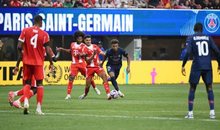
PSG beats Bayern Munich 2-0, advances to Club World Cup semifinals
2025-07-05 20:19:38
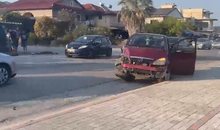
Two vehicles collide on the Elbasan-Peqin axis, drivers injured
2025-07-05 19:26:29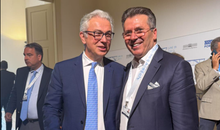

What does Zelenskyy have more than Zegjineja?
2025-07-05 18:45:26

Fiscal peace, but at a cost
2025-07-05 18:00:10
'Bankers' tax evasion, Chinese CEO and former director jailed
2025-07-05 17:39:21
Kyle Walker joins English club on two-year deal
2025-07-05 17:20:24
Two cars collide on the Saranda-Delvina axis, 4 injured
2025-07-05 17:05:29
Touching gesture! Liverpool will pay Jota's family's salary until 2027
2025-07-05 16:45:18
The zodiac signs that cheat most often
2025-07-05 16:25:53

"I asked for the dismissals", Dredha tries to soften Rama's 'blow' in Vlora
2025-07-05 15:48:49
Bomb threat in Parliament, prosecutor: It was a lie
2025-07-05 15:22:28

Bardhi: The recount revealed how greedy Zeqine Balluku is in stealing
2025-07-05 14:44:29
Knife wound on the secondary road Tirana-Durrës, perpetrator sought
2025-07-05 14:37:54
Tears and pain, Diogo Jota is escorted to his final home
2025-07-05 14:21:34
Success starts with yourself! Simple ways to invest in personal development
2025-07-05 13:58:50
Unlicensed firearms found in apartment, 50-year-old arrested in Lushnje
2025-07-05 13:43:11

Tirana Court remands Skerdi Sina to prison
2025-07-05 12:59:34
Cocaine laboratory in Greece, here are the Albanians arrested and wanted
2025-07-05 12:40:16
Directed Justice/Vangjeli: SPAK does not investigate any scandal involving Rama
2025-07-05 12:22:03

Bomb alert, Police remove MPs and media from Kosovo Parliament building
2025-07-05 11:48:16
"The will of the people" and the irony of ordered resignations
2025-07-05 11:32:05
Summer drowning risk: How to enjoy the water without risking your life
2025-07-05 11:20:27
Fire situation in the country, 16 fires reported in 24 hours, 4 still active
2025-07-05 11:07:04
Car hits pedestrian at white lines, injured in serious condition in Vlora
2025-07-05 10:59:58
Mosquito-borne diseases are a growing problem in Europe
2025-07-05 10:44:13



One of Sweden's most dangerous and wanted criminals arrested in Turkey
2025-07-05 09:38:29
Foreign exchange/ How much foreign currencies are bought and sold today
2025-07-05 09:18:38

"Don't be influenced by the opinions of others", today's horoscope
2025-07-05 08:40:50

Morning Post/ In 2 lines: What mattered yesterday in Albania
2025-07-05 08:02:07

Trump says he's ready to raise tariffs to 70% on some countries
2025-07-04 22:35:52
Tre shenjat e zodiakut që do ‘pasurohen’ në Korrik
2025-07-04 22:05:09
Gaza War: Hamas Accepts US Proposal for 60-Day Ceasefire
2025-07-04 21:50:10
Autocracy in Albania, Fuga: Governance has gotten out of control
2025-07-04 21:40:51
Meta: Agriculture on credit, the new fraud!
2025-07-04 21:26:39




Vote recount in Durrës ends without changes
2025-07-04 20:12:54
Gas station explodes in Rome, 25 injured (VIDEO)
2025-07-04 20:00:20

These afternoon habits often sabotage weight loss
2025-07-04 19:39:28
Former Arsenal player Thomas Partey accused of rape
2025-07-04 19:24:21
Shepherd disappears without a trace in Delvina
2025-07-04 19:14:31

Bardho gave Zegjine's mandate/Braho: Unfair! It violates the electoral system
2025-07-04 19:01:08


Rapid developments in the Sultanates!
2025-07-04 18:00:06



Italy tightens rules for skateboard traffic
2025-07-04 17:20:18

Unusual for the time, dense fog covers the coast of Vlora
2025-07-04 16:48:01


Accident on the Shkodra-Lezhë axis, one dead and 3 injured
2025-07-04 16:14:19
Albania with fewer requests for asylum and Albanian citizenship in 2024
2025-07-04 16:06:57

Albania last for quality of life, DP: Technical government is the solution!
2025-07-04 15:42:30
Nico Williams says "No" to Barcelona, signs with Athletic Club until 2035
2025-07-04 15:33:35
Fires in the country, four fires are still active, what is the situation?
2025-07-04 15:24:20

Summer brings big changes for these 4 zodiac signs
2025-07-04 15:00:04
Osmani: MPs need to agree to a secret ballot for the Speaker of Parliament
2025-07-04 14:51:09
Serious accident on the Peqin-Elbasan axis, two injured
2025-07-04 14:37:56

GJKKO leaves in force the security measure for the head of the KPP
2025-07-04 13:58:17
Who will replace Ilir Meta and take over the leadership of the PL?
2025-07-04 13:50:36
Berisha: Dismissal of directors in Vlora, another act of 'scapegoats'
2025-07-04 13:41:46




Librazhd/ In a serious psychological state, the young man consumes pesticides
2025-07-04 13:05:07


Weapons trafficked from Kosovo to Albania, two arrested, 8 pistols seized
2025-07-04 12:33:28
Konsumimi i tepërt i çokollatës, ja cilat janë dëmet që shkakton në organizëm
2025-07-04 12:23:35

Fires in the country, 21 fires in the last 24 hours, 4 still active
2025-07-04 12:00:19
WB calls for debt transparency: Albania to publish details of every loan
2025-07-04 11:50:05
